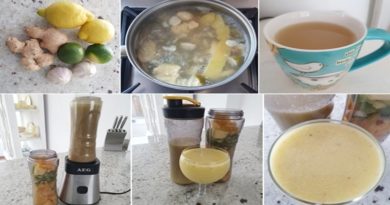Insulin resistance obesity and nutrition: the facts
If like me you are trying to lose weight to look and feel better about yourself, you need to understand the relationship between insulin resistance and obesity and its impact on overall health. Scientists believe that any modern diet that seeks to reduce weight should also be seeking to address
insulin resistance, since there is a strong link between insulin resistance and weight gain. In my quest to adopt a healthy lifestyle I have done some research on the topic this week, which I will share with you.
If you’re wondering what insulin resistance is, when carbohydrates are digested blood glucose levels rise and the pancreas releases insulin into the bloodstream to help deliver glucose to the muscle cells, where it is converted to energy. Insulin resistance refers to the condition where insulin is created in response to the rising glucose levels but fails to lower blood sugar levels effectively.
Insulin resistance is associated with obesity, Type II diabetes, high blood pressure, high cholesterol levels, heart disease and polycystic ovarian syndrome. Insulin resistance carries an increased risk of Type II diabetes and is associated with obesity. A known contributory factor to insulin resistance is the accumulation of omental fat (belly fat that hangs underneath the stomach muscles).
Garvey and Laro-Castro, the authors of a 2004 study published in The Journal of Clinical Endocrinology & Metabolism, say that In general, reducing calories and losing just 5 per cent of initial weight can significantly reduce insulin resistance in obese, diabetic individuals. Losing weight can also help prevent the onset of Type II diabetes.
The Diabetes Prevention Program in the US, a clinical trial involving 3234 adults at a high risk of developing Type II diabetes maintained a 5-7 per cent weight loss for the participants through a low calorie, low fat diet plus a 150 minute walk.
This resulted in a 58 per cent reduction of the incidence of Type II diabetes over a four-year period. This applied to people of all backgrounds – Caucasians, African Americans, Hispanic Americans and Native Americans who took part in the study.
But the authors say that it is not just losing weight that can reduce insulin resistance: there are complex factors at work and therefore the diet involved is a significant factor. They suggest that low-carb, high fat diets can induce insulin resistance, whereas low calorie, high fibre, high carbohydrate diets have the opposite effect – and help to improve insulin resistance.
Garvey and Laro Castro are not the only scientists to rebuke fad diets like low carb diets. In December 2009, Professor Chris Hawkey, president of the British Society of Gastroenterology said that fad diets make you fat in the long term and should be avoided.
Some of the fad diets that professor Hawkey says should be avoided are: Rawism – eating only uncooked foods; The Hollywood Grapefruit Diet – claims that grapefruit contains a fat-burning enzyme; The Atkins Diet – recommends eating very low amounts of carbohydrates and high levels of fat.

Apple Cider Vinegar (ACV) has been scientifically proven to benefit afro textured hair. But one cannot fail to notice the hundreds of websites touting ACV as facilitator of weight loss? But is there any scientific basis to these claims?
Research by Buller, Johnston and Kim (2004) found that ACV can help to reduce insulin resistance. Large scale studies such as the Diabetes Prevention Program and STOP-NIDDM in the US have shown that therapeutic agents can be used to improve insulin sensitivity and can also delay the onset of Type II diabetes.
The authors studied insulin-sensitive non-diabetic individuals, insulin resistant individuals and individuals with Type II diabetes. Fasting subjects were randomly given 20g apple cider vinegar, 40g water and 1 teaspoon of saccharine , or placebo.
After two minutes they were given a test meal consisting of a white bagel, butter and orange juice, totalling 87g of carbohydrates. The findings revealed that apple cider vinegar can improve insulin sensitivity in insulin resistant subjects.
But what about reducing fat? There are very few scientific studies on links between ACV and weight loss, despite the plethora of websites claiming that ACV promotes weight loss.
However, in a study published in The Journal of Agricultural and Food Chemistry, Japanese researchers found that laboratory mice that had been fed a high fat diet supplemented with acetic acid, the main ingredient in vinegar, put on 10 per cent less body fat than the other control group of mice that did not receive the acetic acid.
Thy concluded that acetic acid suppresses the accumulation of body fat, but it is clear that more research is required in this area to test these results, preferably on human beings.
What you should take from this research is that fad diets are more show than substance and hyped up beyond any scientific evidence to support their claims. Long term health plans (such as my Lifestyle Challenge) are more beneficial in the long run.
It is more damaging to your health to lose weight quickly as in the majority of cases you will regain that weight; and there are many studies that prove frequent dieting results in greater weight gain in the long term.
As the science proves, foods that are high in fibre and low in calories such as fruits and vegetables do a good job of promoting weight loss and reducing insulin resistance. Since they are also very low on calories you can really eat as much as you like and not worry about gaining weight.
There is some scientific basis to claims about ACV and insulin resistance, but there is only limited research on ACV reducing fat intake. Under the circumstances common sense should prevail.
Stick to a healthy, balanced diet that is low in fats, full of whole foods; avoid processed foods and incorporate regular exercise into your lifestyle. There is no magic ingredient that can burn off excess weight and induce good health. That is down to sensible eating, willpower, patience and perseverance!
References
Insulin resistance and diabetes; available from http://diabetes.webmd.com/guide/insulin-resistance-syndrome
Buller, A.J, Johnston, C.S and Kim, C.M; Vinegar Improves Insulin Sensitivity to a High-Carbohydrate Meal in Subjects With Insulin Resistance or Type 2 Diabetes; Diabetes Care; Jan 2004; Vol 27; No.1; pp281-282
Fushimi, T, Kaga, T, Kishi, M and Kondoo, T (2009) Acetic Acid Upregulates the Expression of Genes for Fatty Acid Oxidation Enzymes in Liver To Suppress Body Fat Accumulation; Journal of Agricultural and Food Chemistry; Vol 57; No.13; pp 5982-5986
Garvey, W.T and Lara-Castro, C (2004) Diet, Insulin Resistance, and Obesity: Zoning in on Data for Atkins Dieters Living in South Beach; The Journal of Clinical Endocrinology & Metabolism September 1, 2004 vol. 89 no. 9 4197-4205















